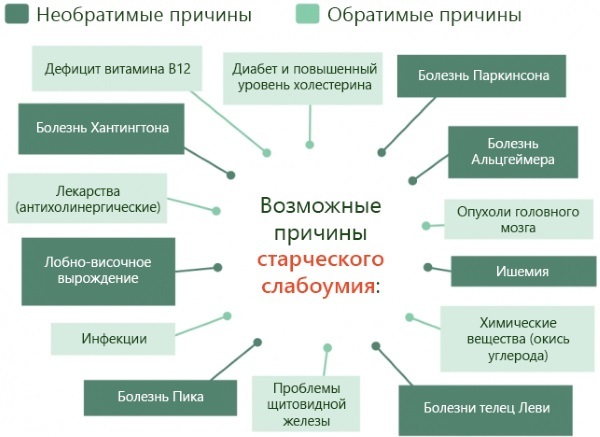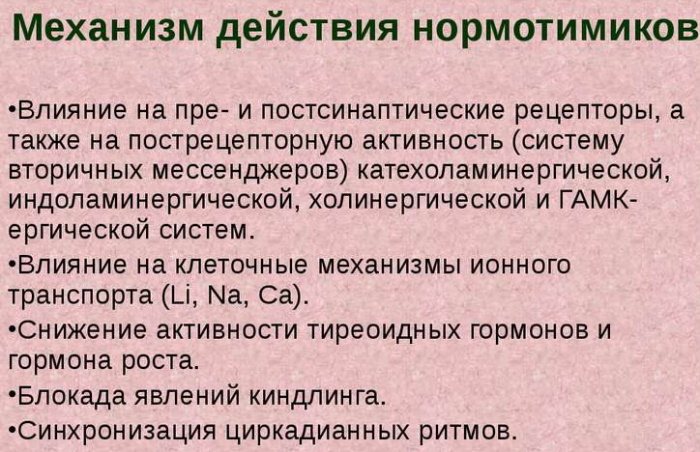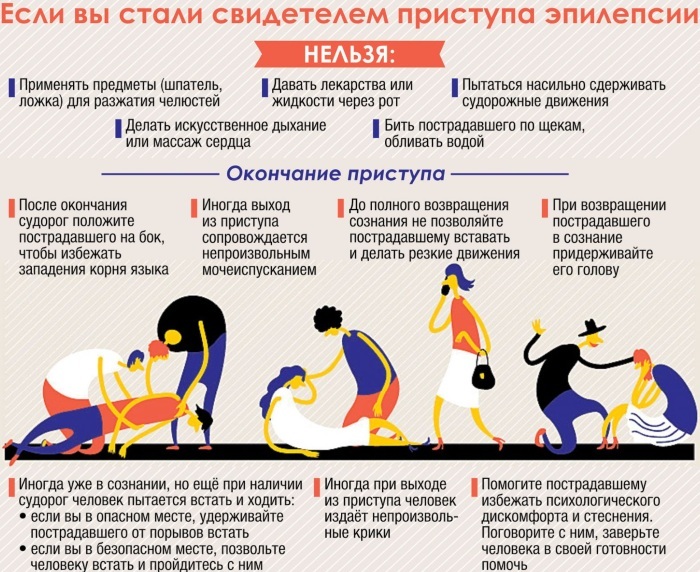Senile dementia is a dangerous and serious disease that affects the elderly patients. Symptoms and signs in women may occur suddenly or gradually, but always life-threatening, and the patient requires constant monitoring.
The content of the article:
- 1 What is senile dementia
- 2 The causes of women
- 3 stage
- 4 The first symptoms of the onset of senile dementia
-
5 Late symptoms of senile dementia
- 5.1 amnesic effects
- 5.2 Reduced mental alertness
- 5.3 Emotional symptoms of dementia
- 5.4 The physical side of life
- 5.5 Communication and attitude to life
-
6 Symptoms of different types of the disease in women
- 6.1 Dementia in Alzheimer's disease
- 6.2 As evident vascular dementia
- 6.3 Dementia with Lewy bodies
- 6.4 Parkinson's disease: relation with dementia and typical symptoms
- 6.5 Frontotemporal Degeneration
- 6.6 Huntington's disease
- 6.7 Pick's disease
- 7 Diagnostics
- 8 Treatment
- 9 Care for the elderly with dementia
- 10 How to create safe conditions for life
- 11 forecasts
- 12 Interesting video about the symptoms of senile dementia
What is senile dementia
Senile dementia is a mental disorder, which manifests itself in a variety of cognitive disorders and accompanied by disorder of psycho-emotional processes. The disease is the most common among patients aged 68-80 years. Experts note that the first symptoms appear before 70 years of age.
The causes of women
According to studies, elderly women suffering from dementia is several times more often than men. Experts can not explain it, but suggest that there is a connection to the emotional and mental instability.
The main reasons are the following violations:
- Atherosclerotic cerebrovascular changes provoking violation of its blood supply and death of individual neurons.
- brain injury, which leads to the destruction of neuronal connections and their replacement by connective tissue.
- Ischemic or haemorrhagic stroke, hemorrhage accompanied in some areas of the brain. In this case, the neurons die off in large numbers, it definitely leads to disruption of thought processes.
- Atrophic changes in brain cells and the disruption of their relationships, as well as of the nerve impulse.
- The uncontrolled use of large doses of medicines for many years. Usually the cause of getting antidepressants, antihypertensives, drugs to treat arrhythmias.
- Neurological disorders provoking regular nerve cell damage.

In addition, such a condition often occurs in women who have more than 3 children. This is attributed to the influence of pregnancy on the processes in the brain. Experts even isolated disease encephalopathy pregnant, which in many cases affects the thinking processes.
stage
Senile dementia (signs and symptoms in women occur with varying degrees of intensity) after the occurrence of the first symptoms subjected to 3 stages of development.
- initial stage It characterized by periodic deterioration of mental processes. In this case, the general condition is not violated, the person accepts and understands itself, its actions, is able to independently carry out ordinary household manipulation.
- Moderate second stage manifested more clearly. Sometimes women forget the elementary rules of the use of simple objects, such as a phone or lock on the door. However, good personal hygiene is usually observes, takes care of herself without assistance.
- Progressing third stage It considered the most dangerous. The patient becomes a threat to himself or others, forget about the use of cutlery and other things, to relieve themselves anywhere.
In the most severe cases, the body's exhaustion, any disease of the internal organs can be fatal.
The first symptoms of the onset of senile dementia
Senile dementia in most cases progresses gradually. Symptoms and signs in women is not just a concern close. Often they are written in the usual symptoms characteristic of a person of advanced age.

The first symptom of memory impairment is considered. The patient is not able to remember the events that took place not so long ago. However, most often it is well oriented in the memories of the past, is able to tell us about the smallest detail and organize your thoughts. Further, the family can observe the manifestation of carelessness and lack of interest in previous hobbies.
Woman becomes indifferent, as if ready for the farewell to life. From time to time she gets depressed.
Time disorientation also becomes one of the first symptoms. She understands where he is, but is not aware of the time of day. In addition, difficulties arise when hit in an unfamiliar place.
The thought process is slowed down. The patient spends more time dealing with simple everyday tasks. In this case, such a delay provokes nervousness. Another early onset dementia is considered to be the rejection of the usual communication with his family. The woman begins to avoid meetings, he tries to stand alone.
Late symptoms of senile dementia
As dementia progresses there are more severe symptoms. They allow professionals to establish an accurate diagnosis and determine the stage of development.
amnesic effects
Memory impairment seen in patients in different ways. They forget the purpose for which go in a particular room, but do not take it seriously, considering ordinary forgetfulness. In this case, similar symptoms occur in women who are under 65 years of age. Time orientation is severely impaired. Patient long remembers the date hereof, and are not able to recognize the familiar childhood places.
Later joined amnestic effects associated with the inability to remember faces. Even after several meetings and conversations with any man she can not remember it. Such symptoms should be cause for concern.

At an advanced stage the patient forgets to face the relatives and can not recognize his own reflection in the mirror. It is worth noting that the changes are gradual progression takes 15 to 20 years. When using tools to improve memory, this period is increased.
Reduced mental alertness
Impaired speech and simple thought processes always accompanies dementia. At the initial stage it is not so noticeable, but with the progression of the state of symptoms also increases. The patient is unable to hold a pen to write and put in mind primes.
Later, there is a gradual loss of the ability to acquire new skills. First, the patient stops performing the usual steps for it, for example, related to the profession. After that, it loses the ability to learn something, as well forget the steps in carrying out normal household manipulation.
It should be noted that in the initial stages of the woman hesitate when it detects its incompetence in the familiar, seemingly question. She tries to hide it from others, the conversation to another topic. Close people can take it as a normal distraction, so do not hurry to address to the expert.
Emotional symptoms of dementia
Senile dementia (symptoms and signs in women are different individually) almost always accompanied by emotional disorders. At first, they stem from the fact that the patient is aware of the inevitability of such changes. She understands the complexity of the situation and withdraws into himself, trying to isolate themselves from society.
When the manifestation of other forms of violations of it breaks down, which is manifested depression or aggression without cause. All traits that were previously determined person, become more visible. Thrift turns to greed, modesty in the prevention of any contact.
In addition, the woman often gets depressed and showing indifference to the things that take up most of her time to the disease. Her mood changes frequently and unexpectedly. It is at this stage surrounding begin to notice that a woman is not well.
The physical side of life
Changes in neural connections and the brain will certainly lead to involvement in the process of motor activity centers. Movement of the patient becomes inaccurate, disturbed coordination. She often loses his balance, is injured.

Since the work of all internal organs disrupted, the body emaciated, sick weakened. She gets tired quickly, can not overcome long distances. Such changes only aggravate the emotional state, because the patient is aware of his helplessness and that it afflicts.
Communication and attitude to life
After the appearance of the first symptoms of the need for the patient to communicate gradually decreases. At an advanced stage it did refuses contact with people focused on self. Even if a woman expresses her thoughts, it does not mean that she is trying to communicate. It's just a way of expression.
Quite often, it also speaks to the fictional characters, respond to their questions as laughing or upset. Attitude to life changes, the patient talks about death, but it does not scare her. Usually at an advanced stage patients, even strive to die to get rid of all at once. It becomes dangerous to themselves and others.
Symptoms of different types of the disease in women
Senile dementia (signs and symptoms in women can be combined with other manifestations of states) rarely occurs as a single mental disorder. In most cases, it is accompanied by other disorders.
Dementia in Alzheimer's disease
More than 60% of patients with a diagnosis of dementia, both Alzheimer's disease. The condition progresses slowly, but the main symptoms observed by the memory. Annually thought processes deteriorated by about 5%. The patient is unable to talk about the recent events, to recall the visual characteristics of an object, the smells.
Memory deteriorates rapidly with time these memories are replaced by false.
A feature of Alzheimer's disease is considered to be replacement of old memories when you try learning new information. In this case, all data is erased later. In addition to the symptoms join speech disorders, there is wanton pronunciation of phrases, conscious or unconscious repetition of the words of the interlocutor, the inability to repeat a compound word or phrase.

Problems with orientation are always part of the clinical picture of Alzheimer's disease. It should be noted that in this form of dementia patient's life expectancy is reduced by several years.
As evident vascular dementia
Encephalopathy is a major cause of vascular dementia. The disease manifests itself in patients older than 60 years and is accompanied by the classic symptoms that occur during normal dementia. The patient loses his memory, ceases to navigate in space, forget the rules on the use of simple household objects, gradually withdraws into himself.
These symptoms align physiological disorders. The patient talks about headaches, nausea, vomiting observed. Dizziness worsen general condition, possible short-term loss of consciousness, increased sensitivity to varying weather conditions.
Dementia with Lewy bodies
This type of dementia is not as common. Its first manifestation is considered a violation of the behavior in REM sleep. The patient talks about the colorful, creepy dreams that her visit. Thus it makes sharp movements, can be dangerous to themselves or others.

After waking up the patient disoriented, did not immediately understand where he is, he can not remember how ended up in this place. In the daytime she is slow, perform the simplest acts with difficulty and gets tired quickly.
It should be noted that these periods of increased activity decline alternate phases. The patient returns to normal life, but closer to the night again gets tired, he becomes depressed, indifferent.
Parkinson's disease: relation with dementia and typical symptoms
About 5% of the total number of cases of dementia accounted for Parkinson's disease. Usually symptoms manifested in the later stages, patients older than 70 years who have a genetic predisposition to such disorders.
The main features of the disorder are as follows:
- Muscle rigidity, accompanied by their excessive stress and difficulty in movement.
- Gait disturbance by impairment of motor coordination.
- limb tremor, which manifests itself during movement and at rest. Sometimes the tremor is replaced by the hardness of the muscles when they are in constant tension.

In addition, there are the classic symptoms of dementia, manifested memory disorders and other disorders.
Frontotemporal Degeneration
This type of violation is characterized by early onset of symptoms in patients younger than 50 years. The most common cause is becoming a genetic predisposition.
The main symptoms are as follows:
- rude and antisocial speech, abnormal behavior;
- intemperance in sexual terms, the lack of embarrassment;
- looseness, unwillingness to compromise;
- changing tastes in food, chewing objects, unfit for human consumption, constant smacking;
- impaired perception of others emotions;
- lack of desire to spend time in the company of loved ones;
- reluctance to talk or gesture to explain to others while retaining the ability to speak and understand speech.
The main difference of this disorder from classical forms of dementia is the lack of orientation disorders, as well as movement disorders. The patient forgets places and faces of the people, well remembers the date, moves well, is not tired quickly.
In addition, this form of the disease is characterized by lesions of the frontal lobe of the brain, whereas the vascular dementia is accompanied by the presence of multiple lesions in different sites.
Huntington's disease
This disease is dangerous for patients up to 30 years, as is developing rapidly and is accompanied by severe symptoms. Impaired memory and orientation is not considered essential features.

In the initial stages the patient marks a change of gait, movements are abrupt and not always accurateIn a state of dormancy is difficult to fix the woman's body, facial muscles involuntarily reduced, which leads to the appearance of a face.
As the condition progresses the patient becomes aggressive or apathetic, sometimes depressed. Considered dangerous symptom of hallucinations and delusions. It is worth noting that the disease is hereditary in most cases, an accurate diagnosis can be made in the analysis of the patient's DNA chain.
Pick's disease
Symptoms appear after 50 years. In the initial stages the memory is not getting worse, but the patient is unstable, aggression gives way to apathy, depression euphoria. It repeats the same jokes, phrases and stories several times, although remember that already talked about it.
Progression of the disease is accompanied by a manifestation of selfishness, strengthening basic instincts. On stage there are 2 other disorders: memory impairment, loss of the ability to read, write, speak and understand speech. In the advanced stage the patient becomes completely dysfunctional, it loses memory, orientation in time and space.
Diagnostics
Senile dementia (symptoms and signs in women are taken into account in the diagnosis) is not so easy to install, especially in the early stages. For survey use different methods.

| Method | Description |
| General inspection | The doctor examines the skin, mucous membranes, said visible related disorders |
| Clinical researches | Take a sample of blood and urine tests to detect abnormalities in the internal organs |
| Special tests to detect abnormalities | Specialist asks the patient to talk about recent events, to repeat a few words and solve the most simple tasks |
| poll relatives | The survey allows the patient's relatives to supplement the clinical picture, to clarify the nuances of behavior |
| MRI | The technique helps you see in the pictures the localization of the lesion, which facilitates diagnosis |
Sometimes it takes the patient's DNA analysis, which helps to confirm or exclude a hereditary predisposition. The method is used when symptoms of genetic diseases are present.
Treatment
Unfortunately, senile dementia can not be cured. Only a specialist can prescribe remedies that can help alleviate the condition of the patient and a little to suspend the development of dementia.
The most commonly used drugs:
- Nootropics (Cerebrolysin, Piracetam, nootropics) help restore the neural connections and stimulate the resumption of brain cell function, restore normal blood circulation.
- Preparations for the normalization of blood circulation in the brain, for example, Cinnarizine can improve the general condition, eliminate the physiological manifestations of the disease.
- Medicaments to strengthen the vascular wall (Ascorutin) indicated in patients having a tendency to brittleness vessels.
- Sedatives plant origin (Persen, Novo-pass) are indicated for sleep disorders, severe nervousness.
- Antidepressants (amitriptyline, Anafranil) are assigned when severe depression, lack of desire to live, suicide attempts.

When symptoms of other diseases doctor prescribes symptomatic treatment. Usually it is antiarrhythmic, antihypertensives, diuretics, gastroprotectives, cholagogue medicines gepatoprotektory.
Care for the elderly with dementia
patient's relatives must provide a complete and continuous care. In the early stages it is sufficient to remind the patient hygiene and prompt determination of certain things. As the disease progresses it is necessary to establish full control over women's lives.
Do not leave her alone. Later, it is necessary not only to remind the patient of personal hygiene, but also help it to perform manipulations. When complete immobility and loss of interest in life require complete care, including feeding, brushing, washing, change of underwear and bed linen, diapers.
How to create safe conditions for life
In the later stages it is necessary to completely eliminate the likelihood that the patient will be able to harm themselves or others. Do not allow it to gas or electric cooker, hot water, or other appliances, forks, knives. In addition, you need to remove all the ropes, needles, belts, threads that can become dangerous.

It is important not to allow the patient self-administration of drugs, the use of alcohol In addition, it is important to prevent the possibility of opening the windows, Balcony doors, do not allow the patient to go for a walk alone.
forecasts
When the sluggish course of the disease the patient can live up to 20 years, but needs full control and care. With the rapid progression of the condition of shortened life expectancy to 10 years. With the development of Parkinson's disease, Pick's, Huntington's disease, vascular dementia or frontotemporal degeneration patient lives from 6 to 8 years if properly cared for.
Prediction is always unfavorable, because the disease is not treated. Senile dementia - a common and dangerous disease. Symptoms and signs in women appear more often than men. Patients need constant supervision of doctors and relatives.
Interesting video about the symptoms of senile dementia
Fragment of the program "Live healthy" about Alzheimer's disease:
How do you know that you are threatened with dementia:



